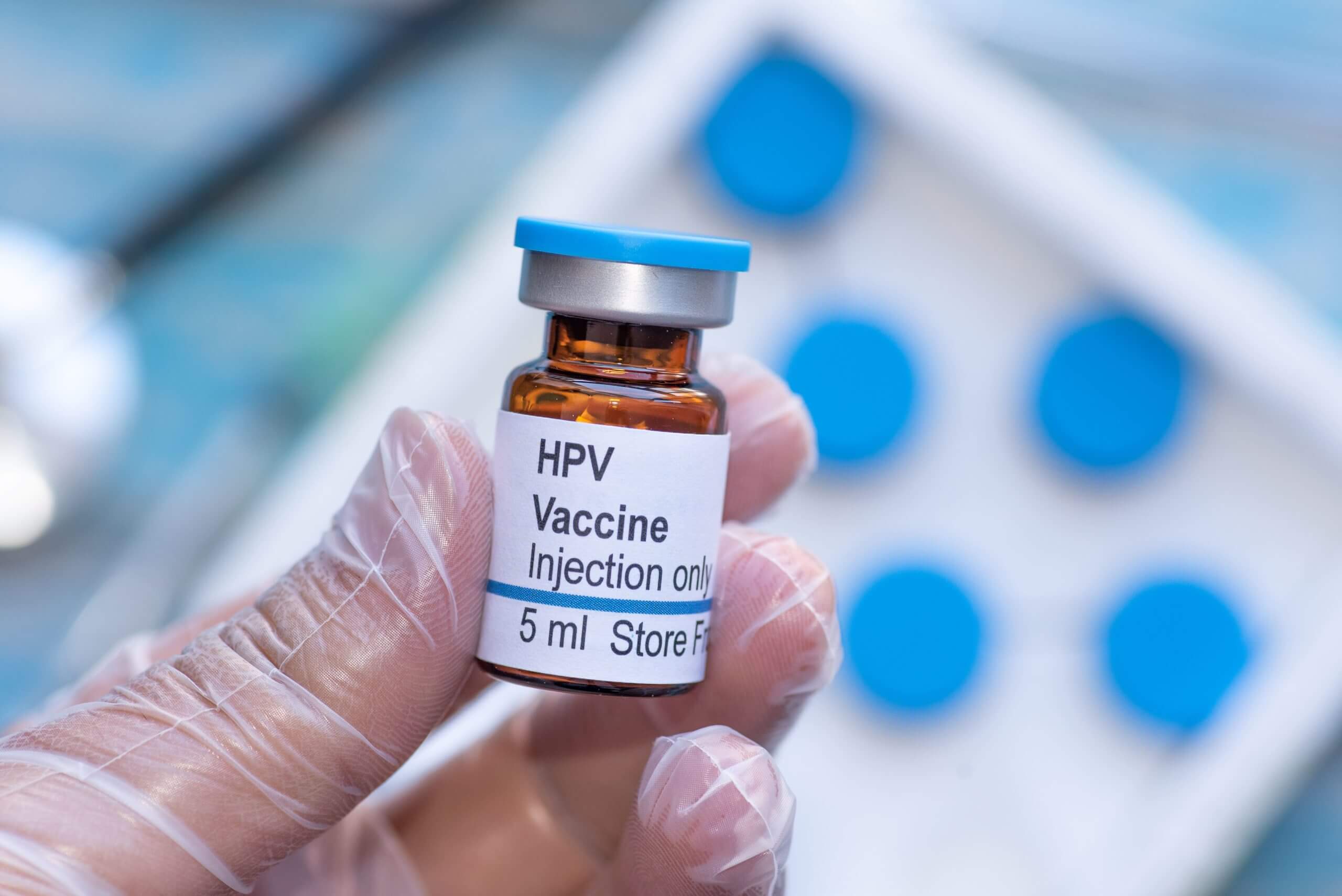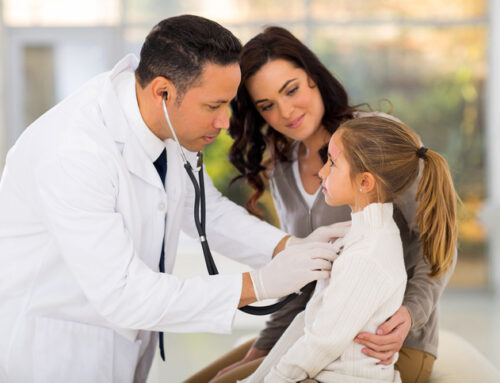
Routine vaccinations can help people of all ages maintain good health and prevent disease. One vaccine that is administered by a pediatrician is the HPV vaccine. Human Papillomavirus (HPV) is the most common sexually transmitted infection in the United States, and while there are treatments for the health problems that this infection can cause, it can also lead to more serious complications or health issues.
As with any vaccine, the point is to protect. This is particularly important with HPV vaccines because HPV is the leading cause of cervical cancer. Administering the HPV vaccine is important BEFORE there is a risk, which is why the vaccine is typically administered as early as age nine.
The vaccine doesn’t necessarily need to coincide with parental discussions on sexual health. However, your pediatrician can be a valuable resource for this topic as your child matures to adolescent age. As parents, it is our job to protect our children from infections and cancer, and when a child reaches nine years of age, parents are encouraged to consider the HPV vaccine. The point is to prevent this disease before your children become adolescents, which is when exposure is much more likely.
The History and Importance of HPV Vaccines
HPV is responsible for some very sobering statistics, such as:
- Half of new infections occur in women between the ages of 15 and 24.
- An estimated 40% of women are infected within the first two years of sexual activity, and 85% of sexually active men and women will get an HPV infection at some time during their lifetime.
- Every year, 13 million Americans, including teens, become infected with HPV, and more than 80% of women will become infected by HPV by age 50.
There are 100 different strains of HPV, and fortunately, a vaccine against HPV was developed 15 years ago. The first vaccine, Gardasil (HPV4), was approved in 2006 and covered four types of HPV – two of which account for 70% of cervical cancer and 90-100% of anogenital warts. A second HPV vaccine, Cervarix, was protective against two strains and was approved in 2009. It was tested for seven years on 30,000 patients and was found to be safe and effective.
In 2014, the Gardasil 9, which is the vaccine we give now, was released. It covers nine strains of HPV (hence the name) and was tested on 15,000 patients. Since the vaccine has been given in this country, the incidence of HPV infections has decreased significantly. Genital warts and cancers caused by HPV have decreased by 88% in teens vaccinated against it and 81% of adult women who have been vaccinated. Evidence has shown that these vaccines have been extremely effective.
So How Does HPV Spread?
HPV spreads by skin-to-skin contact. Although condoms offer some protection against HPV, they do not completely prevent the spread of the virus because they do not cover all infected areas. Some people may not have a clear sign of infection to know that they are contagious, which makes HPV even easier to spread.
Cancer and HPV
Fortunately, most HPV infections resolve on their own. That being said, those that do not may cause genital warts. Warts may be treated with topical medication or surgery, but some warts can become persistent. If these lesions are not found or treated, they may cause cancer of the tongue, tonsils, oropharynx (back of the throat), cervix, vagina, vulva, penis, and anus. Every year, thousands of men and women are diagnosed with cancer caused by HPV, and these related cancers usually occur 20 to 25 years after infection. If cancer develops, it may have to be treated by surgical removal, chemotherapy, and/or radiation. More sobering statistics regarding HPV and cancer include:
- 4,000 women die of cervical cancer annually in the United States
- 9,000 women are diagnosed with HPV-related anal and throat cancers each year in the U.S
- 270,000 people die of HPV-related cancers worldwide each year
Surgery involving the cervix, whether it is performed because of an HPV infection or cancer, may lead to complications of pregnancy or childbirth. Rarely, a woman may transmit the virus to her infant during childbirth, which may cause warts to develop in the baby’s airway and lead to difficulty breathing, swallowing, and hoarseness.
While cervical cancer can be detected relatively early, other HPV-related cancers do not have a screening test and may not be diagnosed until they have spread.
Protecting Your Child from HPV Early On
The best way to prevent HPV-induced cancer is to give your child the vaccine earlier rather than later, as it can protect them long before they ever have contact with the virus. That is why it is now recommended for all children as young as nine years old to receive the vaccine. While the vaccine prevents infection, it does not treat it. It has been so effective that it is now also recommended for people up to age 45, as it may help prevent some strains to which sexually active people have not yet been exposed. Those who receive the vaccine before age 15 need two shots, 6 to 12 months apart, and those over age 15 need three shots over a 6-month period.
HPV Vaccine Side Effects
Parents should keep in mind that no vaccine comes without side effects. Luckily, the HPV vaccine’s side effects are mild. Only 20% of patients complain of pain at the injection site, and 30% of patients complain of swelling. Additionally, only 25% of patients complain of redness, and even fewer have nausea, headache, or fainting shortly after vaccination.
Despite reports to the contrary, the HPV vaccine has not been found to cause blood clots, stroke, heart attacks, chronic fatigue syndrome, or Guillain-Barre syndrome, a neurological condition causing weakness, numbness, and fatigue. Similar to condom distribution and the “morning after” pill, this vaccine does not increase sexual promiscuity.
Talking to Your Child About Sexual Health
While it might be difficult for parents to envision this for their children, eventually, as they mature into adolescence, there is a possibility of exposure to HPV. As we educate preteens and teenagers to be responsible when engaging in this behavior by always taking proper precautions, parents must also be responsible and give them the proper vaccinations to keep them safe throughout adulthood to minimize their chance of getting and giving the Human Papillomavirus.
 Dr. Amy Aqua is a proud member of the TopLine MD Alliance practicing Pediatrics in Palm Beach County.
Dr. Amy Aqua is a proud member of the TopLine MD Alliance practicing Pediatrics in Palm Beach County.
The TopLine MD Alliance is an association of independent physicians and medical practice groups who are committed to providing a higher standard of healthcare services. The members of the TopLine MD Alliance have no legal or financial relationship with one another. The TopLine MD Alliance brand has no formal corporate, financial or legal ties to any of the affiliated physicians or practice groups.



